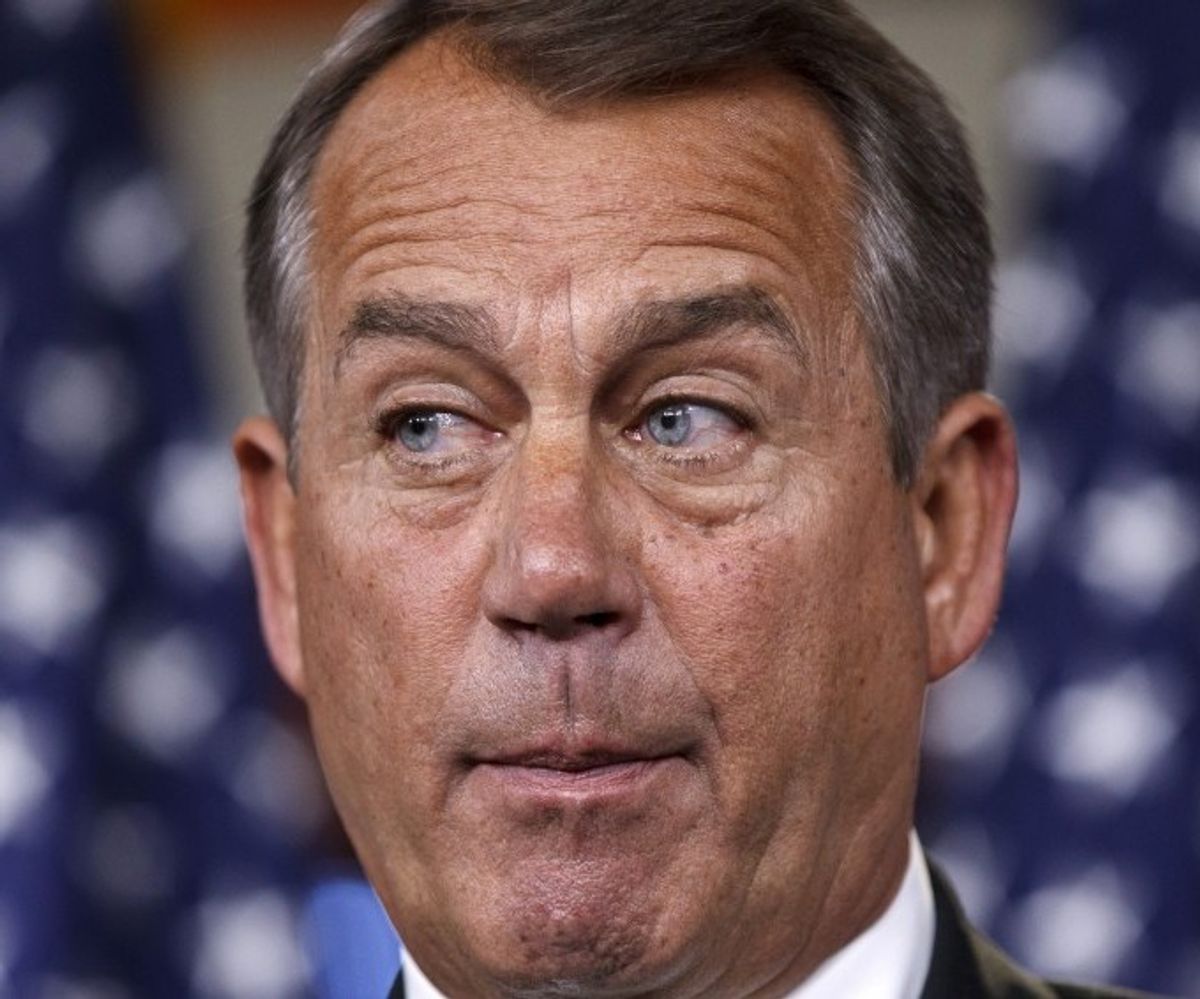 One of the more interesting results in yesterday’s Washington Post/ABC News poll, as the Post's Greg Sargent alluded to this morning, is the overwhelming opposition to Medicare cuts from Republican voters. Sixty-eight percent of self-identified Republicans—and 68 percent of self-identified conservatives—oppose cuts to the health-care program for seniors.
One of the more interesting results in yesterday’s Washington Post/ABC News poll, as the Post's Greg Sargent alluded to this morning, is the overwhelming opposition to Medicare cuts from Republican voters. Sixty-eight percent of self-identified Republicans—and 68 percent of self-identified conservatives—oppose cuts to the health-care program for seniors.
There’s no question that this is the result of the GOP’s demographics. Sixteen percent of all voters this year were 65 or older, and they broke for Mitt Romney, 56 percent to 44 percent. If you disaggregate by race—and count only white seniors—that margin widens by 5 points in Romney’s direction. And if you include the age group just below seniors—a large portion of whom are several years away from claiming Medicare benefits—you have Romney winning 61 percent of white voters who are 45 or older.
In other words, it’s no wonder GOP voters are opposed to Medicare cuts—it’s money out of their livelihoods in a way that’s concrete and (I imagine) frightening.
But, with that said, it’s also worth considering the role Republican leaders have played in encouraging opposition to Medicare cuts. In 2010, GOP congressional candidates—to great success—ran against the Medicare savings in the Affordable Care Act. Although the following year, House Republicans relentlessly pushed the Ryan plan, which called for massive cuts to Medicare for everyone under the age of 55, they reversed course during the 2012 election. Mitt Romney’s and Paul Ryan’s sole word on Medicare was an attack on the administration for “stealing” from Medicare in order to fund Obamacare, and a promise to restore the $716 billion in cuts.
Is it any surprise that—after two solid years of running against them—Republicans find themselves with an electorate that’s overwhelmingly opposed to the prospect of Medicare cuts? Congressional Republicans can certainly try to include cuts in a deal over the fiscal cliff, but given their unpopularity with GOP voters, it’s not a wise move.
It should be said that this problem will only become worse. The GOP electorate is aging, with more and more people entering the ranks of Medicare recipients. As time goes on, older Republican voters are likely to become even more opposed to Medicare cuts, putting GOP politicians in the same, tough position: committed to smaller government but reliant on voters who rely on one of our largest programs.



Shares